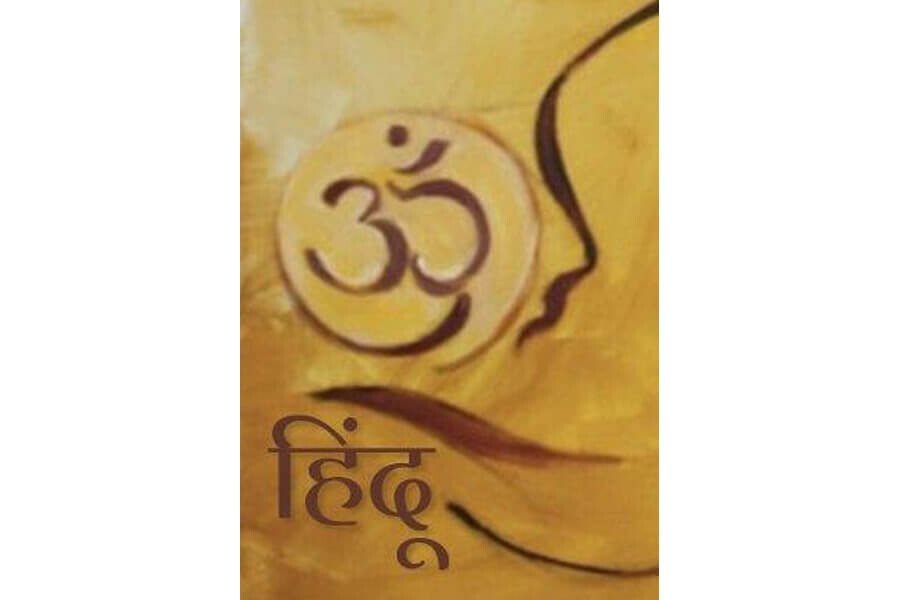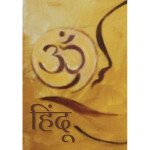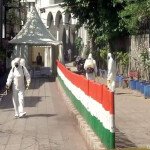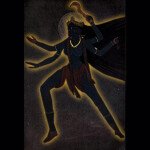The words Hindutva and Hinduism both of them being derived from the word Hindu, must necessarily be understood to refer to the whole of the Hindu people. Any definition of Hinduism that leaves out any important section of our people and forces them either to play false to their convictions or to go outside the pale of Hindutva stands self-condemned.
Hinduism means the system of religious beliefs found common amongst the Hindu people. And the only way to find out what those religious beliefs of the Hindus are, i.e., what constitutes Hinduism, you must first define a Hindu. But forgetting this chief implication of the word Hinduism, which clearly presupposes an independent conception of a Hindu, many people go about to determine the essentials of Hinduism and finding none so satisfactory as to include, without overlapping all our Hindu communities, come to the desperate conclusion—which does not satisfy them either—that therefore those communities are not Hindus at all; not because the definition they had framed is open to the fault of exclusion but because those communities do not subject themselves to the required tenets which these gentlemen have thought it fit to label as 'Hinduism'. This way of answering the question 'who is a Hindu' is really preposterous and has given rise to so much of bitterness amongst some of our brethren of Avaidik school of thought, the Sikh, the Jain, the Devsamaji and even our patriotic and progressive Aryasamajis.
'Who is a Hindu?' — he who is subject to the tenets of Hinduism. Very well. What is Hinduism?— those tenets to which the Hindus are subjected. This is very nearly arguing in a circle and can never lead to a satisfactory solution. Many of our friends who have been on this wrong track have come back to tell us 'there are no such people as Hindus at all!' If some Indian, as gifted as that Englishman who first coined the word Hinduism, coins a parallel word 'Englishism' and proceeds to find out the underlying unity of beliefs amongst the English people, gets disgusted with thousands of sects and societies from Jews to the Jacobins, from Trinity to Utility, and comes out to announce that 'there are no such people as the English at all,' he would not make himself more ridiculous than those who declare in cold print 'there is nothing as a Hindu people.' Any one who wants to see what a confusion of thought prevails on the point and how the failure to analyze separately the two terms Hindutva and Hinduism renders that confusion worst confounded may do well to go through the booklet, 'Essentials of Hinduism' published by the enterprising ‘Natesan and Co.’
Hinduism means the 'ism' of the Hindu; and as the word Hindu has been derived from the word Sindhu, the Indus, meaning primarily all the people who reside in the land that extends from Sindhu to Sindhu, Hinduism must necessarily mean the religion or the religions that are peculiar and native to this land and these people. If we are unable to reduce the different tenets and beliefs to a single system of religion then the only way would be to cease to maintain that Hinduism is a system and to say that it is a set of systems consistent with, or if you like, contradictory or even conflicting with, each other.
But in no case can you advance this, your failure to determine the meaning of Hinduism, as a ground to doubt the existence of the Hindu nation itself, or worse still to commit a sacrilege in hurting the feelings of our Avaidik brethren and Vaidik Hindu brethren alike, by relegating any of them to the Non-Hindu pale.
The limits of this essay do not permit us to determine the nature or the essentials of Hinduism or to try to discuss it at any great length. As we have shown above the enquiry into what is Hinduism can only begin after the question 'who is a Hindu'? is rightly answered determining the essentials of Hindutva; and as it is only with these essentials of Hindutva, which enable us to know who is a Hindu, that this our present enquiry is concerned, the discussion of Hinduism falls necessarily outside of our scope. We have to take cognizance of it only so far as it trespasses on the field of our special charge.
Hinduism is a word that properly speaking should be applied to all the religious beliefs that the different communities of the Hindu people hold. But it is generally applied to that system of religion which the majority of the Hindu people follow. It is natural that a religion or a country or community should derive its name from the characteristic feature which is common to an overwhelming majority that constitutes or contributes to it. It is also convenient for easy reference or parlance. But a convenient term that is not only delusive but harmful and positively misleading should not any longer be allowed to blind our judgement. The majority of the Hindus subscribes to that system of religion which could fitly be described by the attribute that constitutes its special feature, as told by Shruti, Smriti and Puranas or Sanatan Dharma. They would not object if it even be called Vaidik Dharma. But besides these there are other Hindus who reject either partly or wholly, the authority—some of the Puranas, some of the Smritis and some of the Shrutis themselves. But if you identify the religion of the Hindus with the religion of the majority only and call it orthodox Hinduism, then the different heterodox communities being Hindus themselves rightly resent this usurpation of Hindutva by the majority as well as their unjustifiable exclusion.
The religion of the minorities also requires a name. But if you call the so-called orthodox religion alone as Hinduism then naturally it follows that the religion of the so-called heterodox is not Hinduism. The next most fatal step being that, therefore, those sections are not Hindus at all!! But this inference seems as staggering even to those who had unwillingly given whole-hearted support to the premises which have made it logically inevitable that while hating to own it, they hardly know to avoid arriving at it. And thus we find that while millions of our Sikhs, Jains, Lingayats, several Samajis and others would deeply resent to be told that they—whose fathers' fathers up to the tenth generation had the blood of Hindus in their veins—had suddenly ceased to be Hindu!—yet a section amongst them takes it most emphatically for granted that they had been faced with a choice that either they should consent to be a party to those customs and beliefs which they had in their puritanic or progressive zeal rejected as superstitions, or they should cease to belong to that race to which their forefathers belonged.
All this bitterness is mostly due to the wrong use of the word, Hinduism, to denote the religion of the majority only. Either the word should be restored to its proper significance to denote the religions of all Hindus or if you fail to do that it should be dropped altogether. The religion of the majority of the Hindus could be best denoted by the ancient accepted appellation, the Sanatan Dharma or the Shruti-smriti-puranokta Dharma or the Vaidik Dharma; while the religion of the remaining Hindus would continue to be denoted by their respective and accepted names Sikha Dharma or Arya Dharma or Jain Dharma or Buddha Dharma. Whenever the necessity of denoting these Dharmas as a whole arises then alone we may be justified in denoting them by the generic term Hindu Dharma or Hinduism. Thus there would be no loss either in clearness, or in conciseness but on the other hand a gain both in precision and unambiguity which by removing the cause of suspicion in our minor communities and resentment in the major one would once more unite us all Hindus under our ancient banner representing a common race and a common civilization.
The earliest records that we have got of the religious beliefs of any Indian community—not to speak of mankind itself—are the Vedas. The Vedic nation of the Saptasindhus was sub-divided into many a tribe and class. But although the majority then held a faith that we for simplicity call Vedic religion, yet it was not contributed to by an important minority of the Sindhus themselves. The Panees, the Dasas, the Vratyas and many others from time to time seem to have either seceded from or never belonged to the orthodox church and yet racially and nationally they were conscious of being a people by themselves. There was such a thing as Vedic religion, but it could not even be idenitfied with Sindhu Dharma; for the latter term, had it been coined, would have naturally meant the set of religions prevailing in Saptasindhu, othodox as well as heterodox.
By a process of elimination and assimilation the race of the Sindhus at last grew into the race of Hindus, and the land of the Sindhus i.e. Sindhustan, into the land of the Hindus i. e. Hindusthan. While their orthodox and the heterodox schools of religions have,—having tested much, dared much and known much,—having subjected to the most searching examination possible till then, all that lay between the grandest and the tiniest, from the atom to the Atman—from the Paramanu to the Parabrahma,—having sounded the deepest secrets of thoughts and having soared to the highest altitudes of ecstasy,— given birth to a synthesis that sympathizes with all aspirants towards truth from the monist to the atheist.
Truth was its goal, realization its method. It is neither Vedic nor non-Vedic, it is both. It is the veritable science of religion applied. This is Hindu dharma—the conclusion of the conclusions arrived at by harmonizing the detailed experience of all the schools of religious thought—Vaidik, Sanatani, Jain, Bauddha, Sikha or Devasamaji. Each one and every one of those systems or sects which are the direct descendants and developments of the religious beliefs Vaidik and non-Vaidik that obtained in the land of the Saptasindhus or in the other unrecorded communities in other parts of India in the Vedic period, belongs to and is an integral part of Hindu Dharma. Therefore the Vaidik or the Sanatan Dharma itself is merely a sect of Hinduism or Hindu Dharma, however overwhelming be the majority that contributes to its tenets. It was a definition of this Sanatan Dharma which the late Lokamanya Tilak framed in the famous verse. Belief in the Vedas, many means, no strict rule for worship-these are the features of the Hindu religion.
In a learned article that he had contributed to the Chitramayajagat which bears the mark of his deep erudition and insight, Lokmanya in an attempt to develop this more or less negative definition into a positive one, had clearly suggested that he had an eye not on Hindutva as such but only on what was popularly called Hindu dharma, and had also admitted that it could hardly include in its sweep the Aryasamajis and other sects which nevertheless are racially and nationally Hindus of Hindus. That definition, excellent so far as it goes, is in fact not a definition of Hindu dharma, much less of Hindutva but of Sanatan Dharma—the Shruti-Smriti-puranokta sect, which being the most popular of all sects of Hindu Dharma was naturally but loosely mistaken for Hindu Dharma itself.
Thus Hindu Dharma being etymologically as well as actually and in its religious aspects only, (for Dharma is not merely religion) the religion of the Hindus, it necessarily partakes of all the essentials that characterize a Hindu. We have found that the first important essential qualification of a Hindu is that to him the land that extends from Sindhu to Sindhu is the Fatherland, (Pitribhu) the Motherland (Matribhu) the land of his patriarchs and forefathers. The system or set of religions which we call Hindu Dharma—Vaidik and Non-Vaidik—is as truly the offspring of this soil as the men whose thoughts they are or who 'saw' the Truth revealed in them. To Hindu Dharma with all its sects and systems this land, Sindhusthan, is the land of its revelation, the land of its birth on this human plane. As the Ganges, though flowing from the lotus feet of Vishnu himself, is even to the most orthodox devotee and mystic so far as human plane is concerned the daughter of the Himalayas, even so, this land is the birth-place—the Matribhu (motherland) and the Pitribhu (fatherland)—of that Tatvajnana (philosophy) which in its religious aspect is signified as Hindu Dharma.
The second most important essential of Hindutva is that a Hindu is a descendant of Hindu parents, claims to have the blood of the ancient Sindhu and the race that sprang from them in his veins. This also is true of the different schools of religion of the Hindus; for they too being either founded by or revealed to the Hindu sages, and seers are the moral and cultural and spiritual descendants and development of the Thought of Saptasindhus through the process of assimilation and elimination, as we are of their seed. Not only is Hindu Dharma the growth of the natural environments and of the thought of the Indus, but also of the Sanskriti or culture of the Hindus. The environmental frames in which its scenes, whether of the Vaidik period or of Buddha, Jain or any extremely modern ones of Chaitanya, Chakradhar, Basava, Nanak, Dayananda or Raja Rammohan, are set, the technical terms and the language that furnished expression to its highest revelation and ecstasies, its mythology and its philosophy, the conceptions it controverted and the conceptions it adopted, have the indelible stamp of Hindu culture, of Hindu Sanskriti, impressed upon them.
Hindu Dharma of all shades and schools, lives and grows and has its being in the atmosphere of Hindu culture, and the Dharma of a Hindu being so completely identified with the land of the Hindus, this land to him is not only a Pitribhu but a Punyabhu, not only a fatherland but a holyland. Yes, this Bharatbhumi, this Sindusthan, this land of ours that stretches from Sindhu to Sindhu is our Punyabhumi, for it was in this land that the Founders of our faith and the Seers to whom 'Veda' the Knowledge was revealed, from Vaidik seers to Dayananda, from Jina to Mahavir, from Buddha to Nagasen, from Nanak to Govind, from Banda to Basava, from Chakradhar to Chaitanya, from Ramdas to Rammohan, our Gurus and Godmen were born and bred. The very dust of its paths echoes the footfalls of our Prophets and Gurus.
Sacred are its rivers, hallowed its groves, for it was either on their moonlit ghats or under their eventide long shadows, that the deepest problems of life, of man, soul and God, of Brahma and Maya, were debated and discussed by a Buddha or a Shankar. Ah! every hill and dell is instinct with memories of a Kapil or a Vyas, Shankar or Ramdas. Here Bhagirath rules, there Kurukshetra lies. Here Ramchandra made his first halt of an exile, there Janaki saw the golden deer and fondly pressed her lover to kill it. Here the divine Cowherd played on his flute that made every heart in Gokul dance in harmony as if in a hypnotized sleep. Here is Bodhi Vriksha, here the deer-park, here Mahaveer entered Nirvana. Here stood crowds of worshippers amongst whom Nanak sat and sang the Arati 'the sun & the moon are the lights in the plate of the sky!' Here Gopichand the king took on vows of Gopichand the Jogi, and with a bowl in his hand knocked at his sister's door for a handful of alms! Here the son of Bandabahadur was hacked to pieces before the eyes of his father and the young bleeding heart of the son thrust in the father's mouth for the fault of dying as a Hindu! Every stone here has a story of martyrdom to tell! Every inch of thy soil, O Mother! has been a sacrificial ground! Not only 'where the Krishnasar is found' but from Kasmir to Sinhar it is ' Land of sacrifice,’ sanctified with a Jnana Yajna or an Atmaajna (self-sacrifice). So to every Hindu, from the Santal to the Sadhu, this Bharatabhumi, this Sindhusthan, is at once a Pitribhu and a Punyabhu—fatherland and a holy land.
That is why in the case of some of our Mohammedan or Christian countrymen who had originally been forcibly converted to a non-Hindu religion and who consequently have inherited along with Hindus, a common Fatherland and a greater part of the wealth of a common culture—language, law, customs, folklore and history—are not and cannot be recognized as Hindus. For though Hindusthan to them is Fatherland as to any other Hindu yet it is not to them a Holyland too. Their holyland is far off in Arabia or Palestine. Their mythology and Godmen, ideas and heroes are not the children of this soil. Consequently their names and their outlook smack of a foreign origin. Their love is divided. Nay, if some of them be really believing what they profess to do, then there can be no choice—they must, to a man, set their Holy-land above their Fatherland in their love and allegiance. That is but natural. We are not condemning nor are we lamenting. We are simply telling facts as they stand.
We have tried to determine the essentials of Hindutva and in doing so we have discovered that the Bohras and such other Mohammedan or Christian communities possess all the essential qualifications of Hindutva but one and that is that they do not look upon India as their Holyland. It is not a question of embracing any doctrine propounding any new theory of the interpretation of God, Soul and Man, for we honestly believe that the Hindu Thought—we are not speaking of any religion which is dogma—has exhausted the very possibilities of human speculation as to the nature of the Unknown—if not the Unknowable, or the nature of the relation between that and thou. Are you a monist—a monotheist—a pantheist —an atheist—an agnostic? Here is ample room, O soul! whatever thou art, to love and grow to thy fullest height and satisfaction in this Temple of temples, that stands on no personal foundation but on the broad and deep and strong foundation of Truth.
Why goest then to fill thy little pitcher to wells far off, when thou standest on the banks of the crystal-streamed Ganges herself? Does not the blood in your veins, O brother, of our common forefathers cry aloud with the recollections of the dear old scenes and ties from which they were so cruelly snatched away at the point of the sword? Then come ye back to the fold of your brothers and sisters who with arms extended are standing at the open gate to welcome you—their long lost kith and kin. Where can you find more freedom of worship than in this land where a Charvak could preach atheism from the steps of the temple of Mahakal —more freedom of social organisation than in the Hindu society where from the Patnas of Orissa to the Pandits of Benares, from the Santalas to the Sadhus, each can develop a distinct social type of polity or organize a new one?
Verily whatever, could be found in the world is found here too. And if anything is not found here it could be found nowhere. Ye, who by race, by blood, by culture, by nationality possess almost all the essentials of Hindutva and had been forcibly snatched out of our ancestral home by the hand of violence—ye, have only to render wholehearted love to our common Mother and recognize her not only as Fatherland (Pitribhu) but even as a Holyland (punyabhu); and ye would be most welcome to the Hindu fold.
This is a choice which our countrymen and our old kith and kin, the Bohras, Khojas, Memons and other Mohammedan and Christian communities are free to make —a choice again which must be a choice of love. But as long as they are not minded thus, so long they cannot be recognized as Hindus. We are, it must be remembered, trying to analyze and determine the essentials of Hindutva as that word is actually understood to signify and would not be justified in straining it in its application to suit any pre-conceived notions or party convenience.
A Hindu, therefore, to sum up the conclusions arrived at, is he who looks upon the land that extends from Sindu to Sindu—from the Indus to the Seas,—as the land of his forefathers—his Fatherland (Pitribhu), who inherits the blood of that race whose first discernible source could be traced to the Vedic Saptasindhus and which on its onward march, assimilating much that was incorporated and ennobling much that was assimilated, has come to be known as the Hindu people, who has inherited and claims as his own the culture of that race as expressed chiefly in their common classical language Sanskrit and represented by a common history, a common literature, art and architecture, law and jurisprudence, rites and rituals, ceremonies and sacraments, fairs and festivals; and who above all, addresses this land, this Sindhusthan as his Holyland (Punyabhu), as the land of his prophets and seers, of his godmen and gurus, the land of piety and pilgrimage.
These are the essentials of Hindutva—a common nation (Rashtra) a common race (Jati) and a common civilization (Sanskriti). All these essentials could best be summed up by stating in brief that he is a Hindu to whom Sindhusthan is not only a Pitribhu but also a Punyabhu. For the first two essentials of Hindutva—nation and Jati—are clearly denoted and connoted by the word Pitrubhu while the third essential of Sanskriti is pre-eminently implied by the word Punyabhu, as it is precisely Sanskriti including sanskaras i.e. rites and rituals, ceremonies and sacraments, that makes a land a Holyland. To make the definition more handy, we may be allowed to compress it in a couplet —
A Sindu Sindhu paryanta, Yasya Bharatbhumika
Pitribhuh Punyabhushchaiva sa vai Hinduriti smritah.
Extracted from Essentials of Hindutva by VD Savarkar.
The paragraph format has been slightly altered by the editors for convenience of reading. — Ed.









